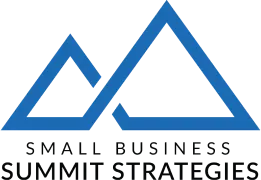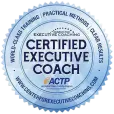
The Morning Struggle
What Marcus Aurelius Knew About Success That Most Entrepreneurs Ignore
Some mornings, I get it right.
I wake up early, take time for gratitude and reading, and start my day centered and focused. Those days feel different—like I’m moving with purpose instead of just reacting. I make better decisions. I handle challenges with more patience. I feel more satisfied with what I accomplish.
And then there are the other mornings.
The ones where I’m exhausted and every minute of sleep feels precious, or there’s an early meeting, or I just can’t seem to find my center before the day begins. I rush into my day, feeling behind before I’ve even started. Those days? They’re not disasters, but they leave me more prone to stress and more likely to get caught up in urgent tasks rather than important ones. I tend to feel just a little bit off balance, a little less sure of myself.
Marcus Aurelius wrote, “When you arise in the morning, think of what a privilege it is to be alive – to breathe, to think, to enjoy, to love.”
Easy to say. Harder to do when the day’s demands are already pressing in. Or you’re super tired. Or both.
Small Choices, Big Impact
The way you start your morning shapes everything that follows:
- The quality of your decisions
- How you interact with your team
- The energy you bring to client meetings
- Your ability to focus on long-term vision instead of just daily fires
I’ve noticed that on mornings when I rush straight into work:
- I’m more likely to feel like I’m in survival mode.
- I’m more likely to make reactive decisions based on immediate pressure rather than long-term value
- Team interactions feel more transactional, less relational
- Innovation and creative thinking take a back seat to immediate tasks
Intentional vs. Reactive Mornings
It all starts with how you approach waking up. I never use a snooze button. Instead, I set my alarm for the latest possible time I can get up and still do what I want to do and what needs to be done. This one choice sets a tone: I don’t negotiate with time; I use it purposefully.
On intentional mornings, I:
- Take a moment for gratitude before checking any devices
- Drink a tall glass of water while gathering my thoughts
- Read something meaningful, even if briefly
- Set my intention and direction for the day before responding to others’ needs
The difference isn’t in how much I get done. It’s in how I show up for what needs doing.
The Technology Challenge
Our devices are designed to demand immediate attention. Each notification triggers a stress response, pushing us into reactive mode. I feel like this is especially true in the post-pandemic world. But here’s how I’m trying to manage this:
Set Clear Boundaries
- I defined my Do Not Disturb hours
- I communicate them clearly to clients and your team
- I stick to them consistently (unless there’s a real emergency)
Create Morning Space
- I keep my iPhone out of arm’s reach at night. This was a super hard habit to break, but it’s been really helpful for me.
- I don’t use my phone as an alarm clock (unless I’m traveling)
- I have a notebook and a pen on my nightstand, ready for morning thoughts
- I wait to check messages until I’ve set my intention and direction for the day
Handle Emergencies Wisely
- I defined what actually constitutes an emergency
- I created systems for true urgent situations
- I don’t let others’ poor planning become my emergency (this was a hard one for me)
Setting these technology boundaries isn’t just about avoiding distractions—it’s about creating space for habits that sustain me. When I control technology instead of letting it control me, I can build routines that actually stick.
Building Sustainable Habits
The goal isn’t perfection—it’s sustainability. Here’s what works for me that I recommend:
Start Small Take just 30 seconds before checking your phone to ask:
- What matters most today?
- Who do I want to be in my interactions?
- What am I grateful for right now?
Protect Your First Hour
- Avoid scheduling early meetings when possible
- Use this time for important, not urgent, tasks
- Set direction and intention before responding to demands
Build in Recovery Points
- If your morning starts rushed, take a deliberate pause later (lunchtime can work well for this)
- Use transitions between tasks to reset (I learned this from Brendon Burchard)
- Remember: any moment of intention beats none at all
The Ripple Effect
How you start your day doesn’t just affect you. It shapes:
- The culture of your business
- The quality of your team’s work life
- The depth of your client relationships
- The sustainability of your success
Marcus Aurelius also wrote, “The happiness of your life depends upon the quality of your thoughts.”
When we start our days with intention, we:
- Make decisions based on values, not just urgency
- Build businesses that reflect our principles
- Create sustainable practices that serve everyone better
- Lead by example, showing others a better way to work
The Reality of the Journey
I’m still working on this. Some weeks are better than others. But I’ve noticed something important: the effort matters. I don’t have to be perfect. And I don’t try to make up for what I “missed.” I just pick up where I left off.
Even on rushed mornings, a moment of intention can shift the entire day. Even when I can’t have my ideal morning routine, I can choose how I engage with what comes next. And when my day runs ahead of me, and I feel like I’m always a step behind, I give myself grace and remember that tomorrow brings another chance to begin again.
Your Next Morning
Tomorrow will come, ready or not. You might:
- Wake up early and find time for reflection
- Face immediate demands that require attention
- Struggle to find your center before diving in
Whatever happens, remember: any moment of peace and/or purpose you can find is better than none. Even if it’s just a deep breath and a conscious thought before engaging with the day’s demands.
You don’t have to do it perfectly. You just have to keep choosing intention over reaction, purpose over pressure, and meaning over meaningless motion.
What small step could you take tomorrow morning?




